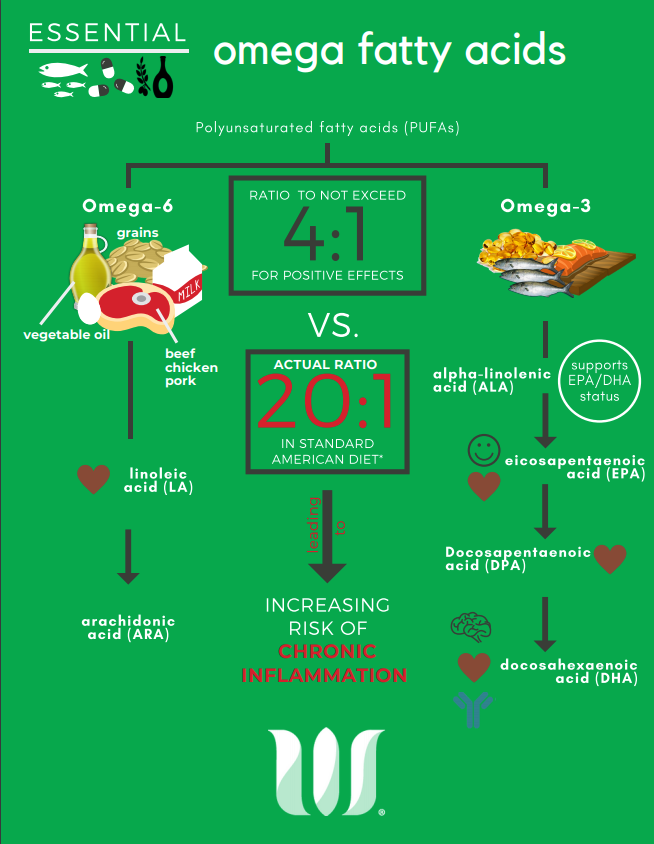Vitamin C For Stress Management
Defining the Immune System
The immune system is a collection of organs, tissues, cells, and enzymes all united under one goal: protect the body.
Structure of the Immune System
The immune system has two parts:
- Innate (non-specific) immune response
- Acquired (specific) immune response
The innate immune response is the non-specific, first response to foreign threats. Immune cells recognize a potential threat, ring the alarm, and the inflammatory response begins.
Read more about the innate immune response.
The acquired immune response is a specific attack on foreign threats. Key players in the acquired immune response include T cells, B cells, and antibodies:
- T cells are immune cells with different responsibilities. For example, helper T cells interact with B cells as part of the antibody production process and activate cytotoxic T cells to target the identified pathogen.
- B cells are immune cells that can circulate throughout the body, interact with antigen-presenting cells, activate helper T cells, transform into plasma B cells, and mass produce antibodies.
- Antibodies are proteins produced by B cells designed specifically to recognize a unique foreign substance, called an antigen.
Read more about the acquired immune response.
Role of the Immune System
What is immunological memory?
T cells, B cells, and antibodies also play an important role in creating immunological memory: the ability of the immune system to store information about a specific pathogen in preparation for future attacks by the same pathogen. Immunological memory is an important concept for the creation of vaccines, which fundamentally work by triggering an initial immune response that creates immunological memory without creating disease. So when an individual encounters the "real" pathogen, the immune system is already equipped with the specific machinery to protect the body.
Read more about immunological memory.
Pathogen vs. Antigen
A pathogen is a microorganism that can cause disease, such as a bacterium, virus, protozoan, or fungus. An antigen is a piece of a pathogen that can be recognized by antigen-presenting cells of the immune system, an important step in mounting an immune response.
Read more about pathogens and antigens in the immune response.
What is the inflammatory response?
The inflammatory response is mounted by the immune system in response to pathogens first recognized by the innate immune response. Macrophages and other antigen-presenting cells engulf and break down pathogens in a process called phagocytosis. Phagocytosis triggers pro-inflammatory signals and recruits other cells to the infection site.
The goal of the inflammatory response during infection is to prevent the pathogen from spreading to other parts of the body. The inflammatory response involves several physiological mechanisms:
- Local blood vessels dilate
- Immune cells are recruited to the infection site
- Necessary enzymes and proteins activated
Read more about the inflammatory response and the innate immune system.
What is inflammation initiation?
Inflammation is initiated by pro-inflammatory lipid mediators, cytokines, and chemokines. This process is characterized by the recruitment of immune cells to the infection site to begin targeting pathogens through phagocytosis.
What is inflammation resolution?
Inflammation resolution is typically a healthy conclusion to the inflammatory process, activated once the immune system has completed whatever task caused it to launch an inflammatory response in the first place. However, various factors can delay resolution, prolonging inflammation and increasing the risk of collateral damage to the body's own tissues.
Many resolving factors play a role in managing the relationship between initiation and resolution, including:
- Specialized pro-resolving mediators
- Omega-3 fatty acids
- Microbiome
- Herbs
- Endocannabinoid system

Exercise
How Can Exercise Support Immune Health?
Regular exercise is a foundational component of the wholistic approach to health , along with nutrition, stress management, and maintaining healthy sleep habits. Recent studies show that regular, moderate physical activity may support immune health temporarily, by helping immune cells identify and target pathogens, and in the long-term, by delaying the negative effects on the immune system that can develop with age .
Stress
How Can Stress Affect Immune Health?
Chronic stress may negatively impact the immune system through excessive elevation of levels of pro-inflammatory cytokines, natural killer cells, and T cells.
How can you manage stress?
Stress management, along with other lifestyle factors, is a foundational component of the wholistic approach to health . Reduce unnecessary stress through hobbies, mindfulness, meditation, and exercise.
Many medicinal herbs are also helpful for stress management, including a class of herbs called " adaptogens ." Adaptogenic herbs may aid in restoring balance to the body when stress disturbs normal function of physiological processes. For example, ashwagandha ( Withania somnifera ) is an adaptogenic herb associated with reduced cortisol levels, stress alleviation, and anxiety relief.
Learn more about the various classifications of herbs, including adaptogens.
Learn more about addressing stress with lifestyle choices.
Aging
How Does Aging Affect Immune Health?
Aging is a natural part of life, and in general, it is associated with a reduced ability of the body to resolve the inflammatory process and balance the immune response. However, a healthy lifestyle can maximize the amount of time certain physiological mechanisms in the body are able to function properly.
Related articles

10-Part Immune System Series: Introduction
The immune system protects the body from infection and disease throughout life. The ability to respond to pathogens is unique to each individual.
Article • January 29, 2018 • 3 min read 

Chronic Inflammation and Resolving Factors
The goal in maintaining a healthy response to inflammation, is not to block inflammation, but to balance pro-inflammatory processes with those that...
Article • April 1, 2020 • 3 min read 


Healthy Inflammation: Right Place, Right Time
Balance, the fight or flight response, and lifestyle factors all contribute to the immune system's identity, and its role in both human health and...
Article • May 28, 2019 • 2 min read 
Immune Support FAQs
Boost the immune system quickly by eating a healthy diet, getting plenty of exercise, managing stress, and optimizing sleep habits.
Strengthen the immune system by eating a healthy diet, getting plenty of exercise, managing stress, and optimizing sleep habits.
A weak immune system may reflect poor dietary choices, sedentary lifestyles, chronic stress, and poor sleep habits. The immune system may grow weaker with age, but maintaining a healthy lifestyle may maximize immune function over the lifespan.
Herbs that are good for the immune system include:
- Curcumin
- Boswellia
- Andrographis
- Echinacea
- Elderberry
- Goldenseal
- Garlic
- Thuja
- Thyme
- Oregano
Vitamin C For Stress Management
Source: https://wholisticmatters.com/immune-system-support-stress-management/


0 Komentar